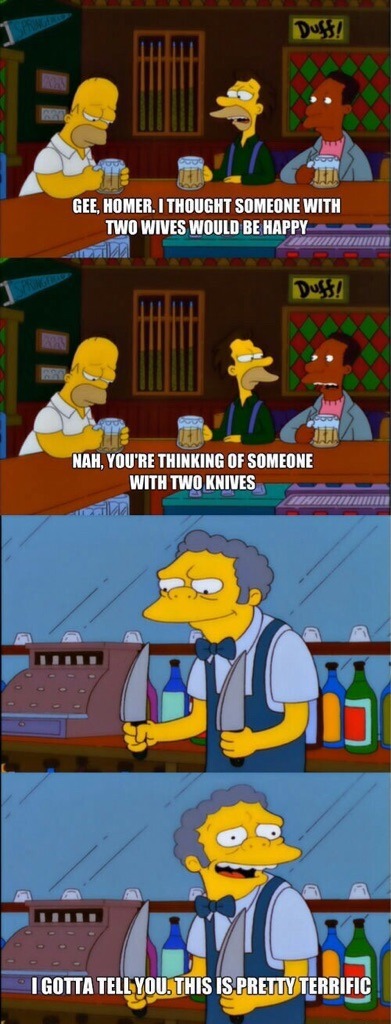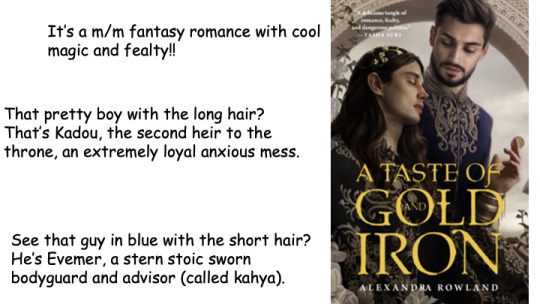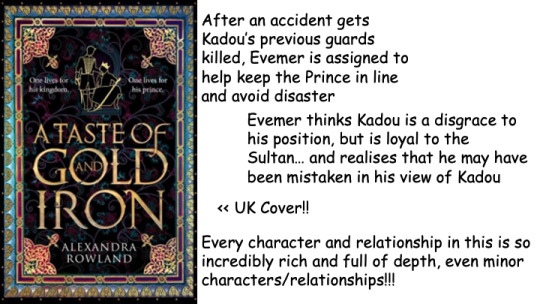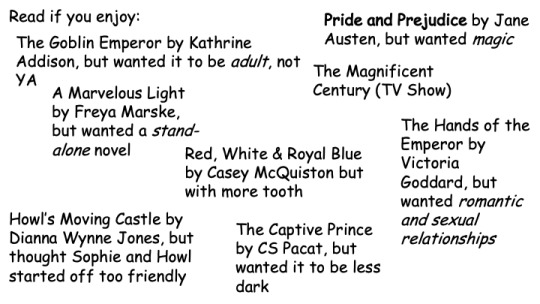you can call me robot | they/them ♤let's talk about books! feel free to send me asks about books and/or aroace stuff
Don't wanna be here? Send us removal request.
Text
“Books are too expensive” -> GET A LIBRARY CARD!!!
“E-books are too expensive” -> GET A LIBRARY CARD!!!
“Audiobooks are too expensive” -> GET A LIBRARY CARD!!!
“Video games are too expensive” -> GET A LIBRARY CARD!!!
“Subscriptions to magazines/newspapers are too expensive” -> GET A LIBRARY CARD!!!
For real, get a library card for your local public library and you will have almost unlimited access to all kinds of media for free. Libraries also often have many different kinds of classes you can take, often for free or very cheap. Oh, and don’t forget the computers and internet access you can also use for free.
In conclusion, yet a library card.
SUPPORT YOUR LOCAL PUBLIC LIBRARY!!!
48K notes
·
View notes
Text
dinosaur sprinkles. look at this post with your eyes if you agree

143K notes
·
View notes
Text
the concept of platonic marriage is so appealing ngl. you mean i can marry whoever i want, get tax benefits and a roommate AND i don't have to worry about them thinking i'm unattractive? king shit
50K notes
·
View notes
Photo

Angela Davis & Ursula K Le Guin, visionary women for a hopeful future
74K notes
·
View notes
Text
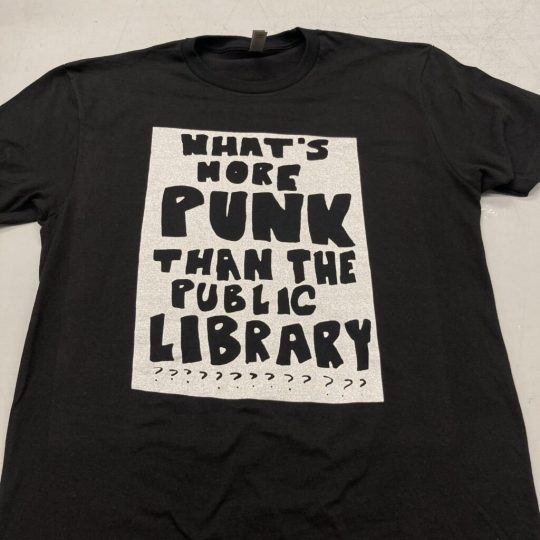
An awesome 'What's More Punk Than The Public Library' t-shirt, which you can buy here. Made by the Mount Pleasant Library Friends. [ID: A black t-shirt with white cut-out text in the middle that reads: WHAT'S MORE PUNK THAN THE PUBLIC LIBRARY?]
42K notes
·
View notes
Text
conflict is not abuse, sarah schulman
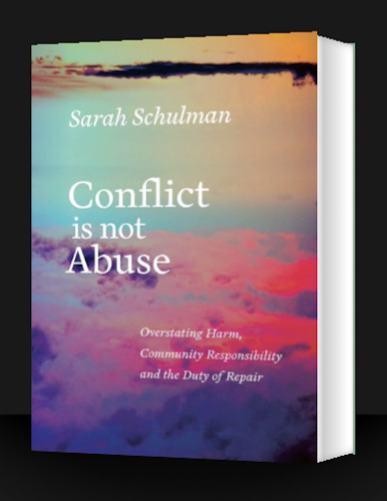
yeah idk. thoughts. not sure. interesting.
1 note
·
View note
Text
humankind, rutger bregman
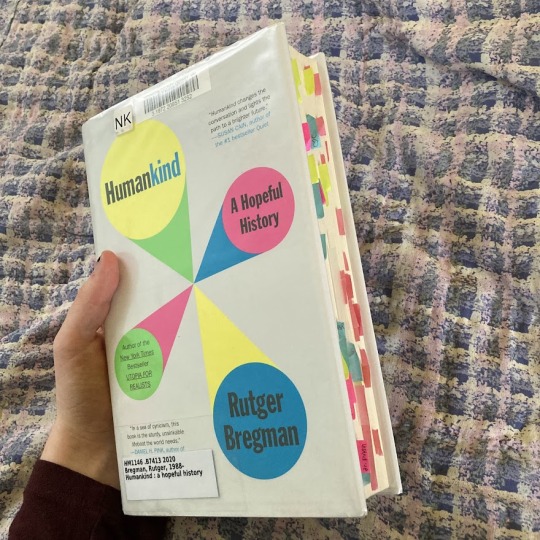
from the beginning of this year. (read)
now: very hard to be mean to yourself and then also believe that people inherently deserve care simply by being a thing. #cognitivedissonance when im pissed with myself
#readingrobot#humankind#rutger bregman#robot rambles#robot reads#robot recommends#have i already made this post
0 notes
Text
my library is having an event where they bring in therapy dogs for little kids learning to read and i so badllyyyy want to go but i don’t know how to be like hey librarian i know i’m a college student maybe majoring in lit but like, i want to read with the therapy dogs
#readingrobot#robot rambles#i don't even like dogs that much#but an afternoon reading with a therapy dog???#for free??#at the local librar???#sign me the fuck up
3 notes
·
View notes
Note
I just want to say thank you, Mr. Gaiman.
I read “The Ocean at the End of the Lane” and “The Graveyard Book” in the same month. Since both stories have a great deal to say about letting things go, it’s ironic that I read them (the first time) while I was beginning therapy for trauma.
The stories were so very cathartic for me. They made me cry, and laugh, and think. And they helped me to let go of thoughts and memories that hurt or hindered me.
So thank you for writing about letting go. Letting go of old hurts and even of old happinesses connected to them was how I was able to begin healing.
I'm so glad that they helped.
1K notes
·
View notes
Text
Essays
Here’s a (non-exhaustive) list of essays I like/find interesting/are food for thought; I’ve tried to sort them as much as possible. The starred (*) ones are those I especially love
also quick note: some of these links, especially the ones that are from books/anthologies redirect you to libgen or scihub, and if that doesn’t work for you, do message me; I’d be happy to send them across!
Literature + Writing
Godot Comes to Sarajevo - Susan Sontag
The Strangeness of Grief - V. S. Naipaul*
Memories of V. S. Naipaul - Paul Theroux*
A Rainy Day with Ruskin Bond - Mayank Austen Soofi
How Albert Camus Faced History - Adam Gopnik
Listen, Bro - Jo Livingstone
Rachel Cusk Gut-Renovates the Novel - Judith Thurman
Lost in Translation: What the First Line of “The Stranger” Should Be - Ryan Bloom
The Duke in His Domain - Truman Capote*
The Cult of Donna Tartt: Themes and Strategies in The Secret History - Ana Rita Catalão Guedes
Never Do That to a Book - Anne Fadiman*
Affecting Anger: Ideologies of Community Mobilisation in Early Hindi Novel - Rohan Chauhan*
Why I Write - George Orwell*
Rimbaud and Patti Smith: Style as Social Deviance - Carrie Jaurès Noland*
Art + Photography (+ Aesthetics)
Looking at War - Susan Sontag*
Love, sex, art, and death - Nan Goldin, David Wojnarowicz
Lyons, Szarkowski, and the Perception of Photography - Anne Wilkes Tucker
The Feminist Critique of Art History - Thalia Gouma-Peterson, Patricia Mathews
In Plato’s Cave - Susan Sontag*
On reproduction of art (Chapter 1, Ways of Seeing) - John Berger*
On nudity and women in art (Chapter 3, Ways of Seeing) - John Berger*
Kalighat Paintings - Sharmishtha Chaudhuri
Daydreams and Fragments: On How We Retrieve Images From the Past - Maël Renouard
Arthur Rimbaud: the Aesthetics of Intoxication - Enid Rhodes Peschel
Cities
Tragic Fable of Mumbai Mills - Gyan Prakash
Whose Bandra is it? - Dustin Silgardo*
Timur’s Registan: noblest public square in the world? - Srinath Perur
The first Starbucks coffee shop, Seattle - Colin Marshall*
Chhatrapati Shivaji Terminus, Mumbai’s iconic railway station - Srinath Perur
From London to Mumbai and Back Again: Gentrification and Public Policy in Comparative Perspective - Andrew Harris
The Limits of “White Town” in Colonial Calcutta - Swati Chattopadhyay
The Metropolis and Mental Life - Georg Simmel
Colonial Policy and the Culture of Immigration: Citing the Social History of Varanasi - Vinod Kumar, Shiv Narayan
A Caribbean Creole Capital: Kingston, Jamaica - Coln G. Clarke (from Colonial Cities by Robert Ross, Gerard J. Telkamp
The Colonial City and the Post-Colonial World - G. A. de Bruijne
The Nowhere City - Amos Elon*
The Vertical Flâneur: Narratorial Tradecraft in the Colonial Metropolis - Paul K. Saint-Amour
Philosophy
The trolley problem problem - James Wilson
A Brief History of Death - Nir Baram
Justice as Fairness: Political not Metaphysical - John Rawls*
Should Marxists be Interested in Exploitation? - John E. Roemer
The Discomfort You’re Feeling is Grief - Scott Berinato*
The Pandemic and the Crisis of Faith - Makarand Paranjape
If God Is Dead, Your Time is Everything - James Wood
Giving Up on God - Ronald Inglehart
The Limits of Consensual Decision - Douglas Rae*
The Science of “Muddling Through” - Charles Lindblom*
History
The Gruesome History of Eating Corpses as Medicine - Maria Dolan
The History of Loneliness - Jill Lepore*
From Tuskegee to Togo: the Problem of Freedom in the Empire of Cotton - Sven Beckert*
Time, Work-Discipline, and Industrial Capitalism - E. P. Thompson*
All By Myself - Martha Bailey*
The Geographical Pivot of History - H. J. Mackinder
The sea/ocean
Rim of Life - Manu Pillai
Exploring the Indian Ocean as a rich archive of history – above and below the water line - Isabel Hofmeyr, Charne Lavery
‘Piracy’, connectivity and seaborne power in the Middle Ages - Nikolas Jaspert (from The Sea in History)*
The Vikings and their age - Nils Blomkvist (from The Sea in History)*
Mercantile Networks, Port Cities, and “Pirate” States - Roxani Eleni Margariti
Phantom Peril in the Arctic - Robert David English, Morgan Grant Gardner*
Assorted ones on India
A departure from history: Kashmiri Pandits, 1990-2001 - Alexander Evans *
Writing Post-Orientalist Histories of the Third World - Gyan Prakash
Empire: How Colonial India Made Modern Britain - Aditya Mukherjee
Feminism and Nationalism in India, 1917-1947 - Aparna Basu
The Epic Riddle of Dating Ramayana, Mahabharata - Sunaina Kumar*
Caste and Politics: Identity Over System - Dipankar Gupta
Our worldview is Delhi based*
Sports (you’ll have to excuse the fact that it’s only cricket but what can i say, i’m indian)
‘Massa Day Done:’ Cricket as a Catalyst for West Indian Independence: 1950-1962 - John Newman*
Playing for power? rugby, Afrikaner nationalism and masculinity in South Africa, c.1900–70 - Albert Grundlingh
When Cricket Was a Symbol, Not Just a Sport - Baz Dreisinger
Cricket, caste, community, colonialism: the politics of a great game - Ramachandra Guha*
Cricket and Politics in Colonial India - Ramchandra Guha
MS Dhoni: A quiet radical who did it his way*
Music
Brega: Music and Conflict in Urban Brazil - Samuel M. Araújo
Color, Music and Conflict: A Study of Aggression in Trinidad with Reference to the Role of Traditional Music - J. D. Elder
The 1975 - ‘Notes On a Conditional Form’ review - Dan Stubbs*
Life Without Live - Rob Sheffield*
How Britney Spears Changed Pop - Rob Sheffield
Concert for Bangladesh
From “Help!” to “Helping out a Friend”: Imagining South Asia through the Beatles and the Concert for Bangladesh - Samantha Christiansen
Gender
Clothing Behaviour as Non-verbal Resistance - Diana Crane
The Normalisation of Queer Theory - David M. Halperin
Menstruation and the Holocaust - Jo-Ann Owusu*
Women’s Suffrage the Democratic Peace - Allan Dafoe
Pink and Blue: Coloring Inside the Lines of Gender - Catherine Zuckerman*
Women’s health concerns are dismissed more, studied less - Zoanne Clack
Food
How Food-Obsessed Millennials Shape the Future of Food - Rachel A. Becker (as a non-food obsessed somewhat-millennial, this was interesting)
Colonialism’s effect on how and what we eat - Coral Lee
Tracing Europe’s influence on India’s culinary heritage - Ruth Dsouza Prabhu
Chicken Kiev: the world’s most contested ready-meal*
From Russia with mayo: the story of a Soviet super-salad*
The Politics of Pancakes - Taylor Aucoin*
How Doughnuts Fuelled the American Dream*
Pav from the Nau
A Short History of the Vada Pav - Saira Menezes
Fantasy (mostly just harry potter and lord of the rings)
Purebloods and Mudbloods: Race, Species, and Power (from The Politics of Harry Potter)
Azkaban: Discipline, Punishment, and Human Rights (from The Politics of Harry Potter)*
Good and Evil in J. R. R. Tolkien’s Lengendarium - Jyrki Korpua
The Fairy Story: J. R. R. Tolkien and C. S. Lewis - Colin Duriez (from Tree of Tales)*
Tolkien’s Augustinian Understanding of Good and Evil: Why The Lord of the Rings Is Not Manichean - Ralph Wood (from Tree of Tales)*
Travel
The Hidden Cost of Wildlife Tourism
Chronicles of a Writer’s 1950s Road Trip Across France - Kathleen Phelan
On the Early Women Pioneers of Trail Hiking - Gwenyth Loose
On the Mythologies of the Himalaya Mountains - Ed Douglas*
More random assorted ones
The cosmos from the wheelchair (The Economist obituaries)*
In El Salvador - Joan Didion
Scientists are unravelling the mystery of pain - Yudhijit Banerjee
Notes on Nationalism - George Orwell
Politics and the English Language - George Orwell*
What Do the Humanities Do in a Crisis? - Agnes Callard*
The Politics of Joker - Kyle Smith
Sushant Singh Rajput: The outsider - Uday Bhatia*
Credibility and Mystery - John Berger
happy reading :)
35K notes
·
View notes
Text
what i read in april 2022:
(previous editions) bold = favourite
class, race, & labour
the kids aren’t alright: the race essentialism of sci-fi hybrids
brazil at work: black and held back
corruption has shaped history. why do we ignore it?
rise of the racist robots – how ai is learning all our worst impulses
south korea: why so many struggle to sleep
how europe’s far right fell in love with australia’s immigration policy
gender & sexuality
‘lives were being ruined’: the dark history of girls gone wild
the race to build the world’s first sex robot
why are so many gay romance novels written by straight women?
the femicide unit turning back the tide of deadly violence against women (mexico)
analysing the ‘bimbo’: a reading list on hollywood blondes
politics, climate change, & covid
dozens of australian raaf pilots are operating drone strikes from the uk
if you want decolonisation go to the economics of samir amin
rice and the climate crisis (thailand)
life after deportation: ‘no one tells you how lonely you’re going to be’ (uk)
history, culture, & media
britain destroyed records of colonial crimes
cowboy progressives (usa)
leaving home meant losing my mother tongue
justifying colonial rule in post-colonial singapore
how colonial violence came home: the ugly truth of the first world war
417 notes
·
View notes
Note
This isnt really a confession but I think sometimes some of us forget that we dont need to immediately put a label on our feelings and/or attraction to be valid
186 notes
·
View notes
Text
i hate you booktok i hate you overly organised bookshelves i hate you hard cover supremacists i hate you reading challenges i hate you colleen hoover i hate you people who can only seem to read ya or romance i hate you same style of cover in every modern book i hate you rupi kaur i hate you plain boring prose i hate you buying books just for the "aesthetic" i love you pretentiousness i love you being a snob
31K notes
·
View notes
Text
Bike Lanes are White Lanes, Melody L. Hoffmann
The number of bicyclists are increasing in the United States, especially among the working class and people of color. In contrast to the demographics of bicyclists in the United States, advocacy for bicycling has focused mainly on the interests of white, upwardly mobile bicyclists, leading to neighborhood conflicts and accusations of racist planning. In Bike Lanes Are White Lanes, scholar Melody L. Hoffmann argues that the bicycle has varied cultural meaning as a "rolling signifier." That is, the bicycle's meaning changes in different spaces, with different people, and in different cultures. The rolling signification of the bicycle contributes to building community, influences gentrifying urban planning, and upholds systemic race and class barriers. In this study of three prominent U.S. cities--Milwaukee, Portland, and Minneapolis--Hoffmann examines how the burgeoning popularity of urban bicycling is trailed by systemic issues of racism, classism, and displacement. From a pro-cycling perspective, Bike Lanes Are White Lanes highlights many problematic aspects of urban bicycling culture and its advocacy as well as positive examples of people trying earnestly to bring their community together through bicycling
0 notes
Text
Anybody Here Seen Frenchie?, Leslie Conor
minimal romance, middle grade fiction, neurodivergent mcs
Eleven-year-old Aurora Petrequin's best friend has never spoken a word to her. In fact, Frenchie Livernois doesn't talk. Aurora is bouncy, loud and impulsive. Making friends has never come easily. When Frenchie, who is autistic, silently chose Aurora as his person back in third grade, she chose him back. They make a good team, sharing their love of the natural world in coastal Maine. In the woods, Aurora and Frenchie encounter a piebald deer, a rare creature with a coat like a patchwork quilt. Whenever it appears, Aurora feels compelled to follow. At school, Aurora looks out for Frenchie, who has been her classmate until this year. One morning, Frenchie doesn't make it to his classroom. Aurora feels she's to blame. The entire town begins to search, and everyone wonders: how is it possible that nobody has seen Frenchie?
1 note
·
View note
